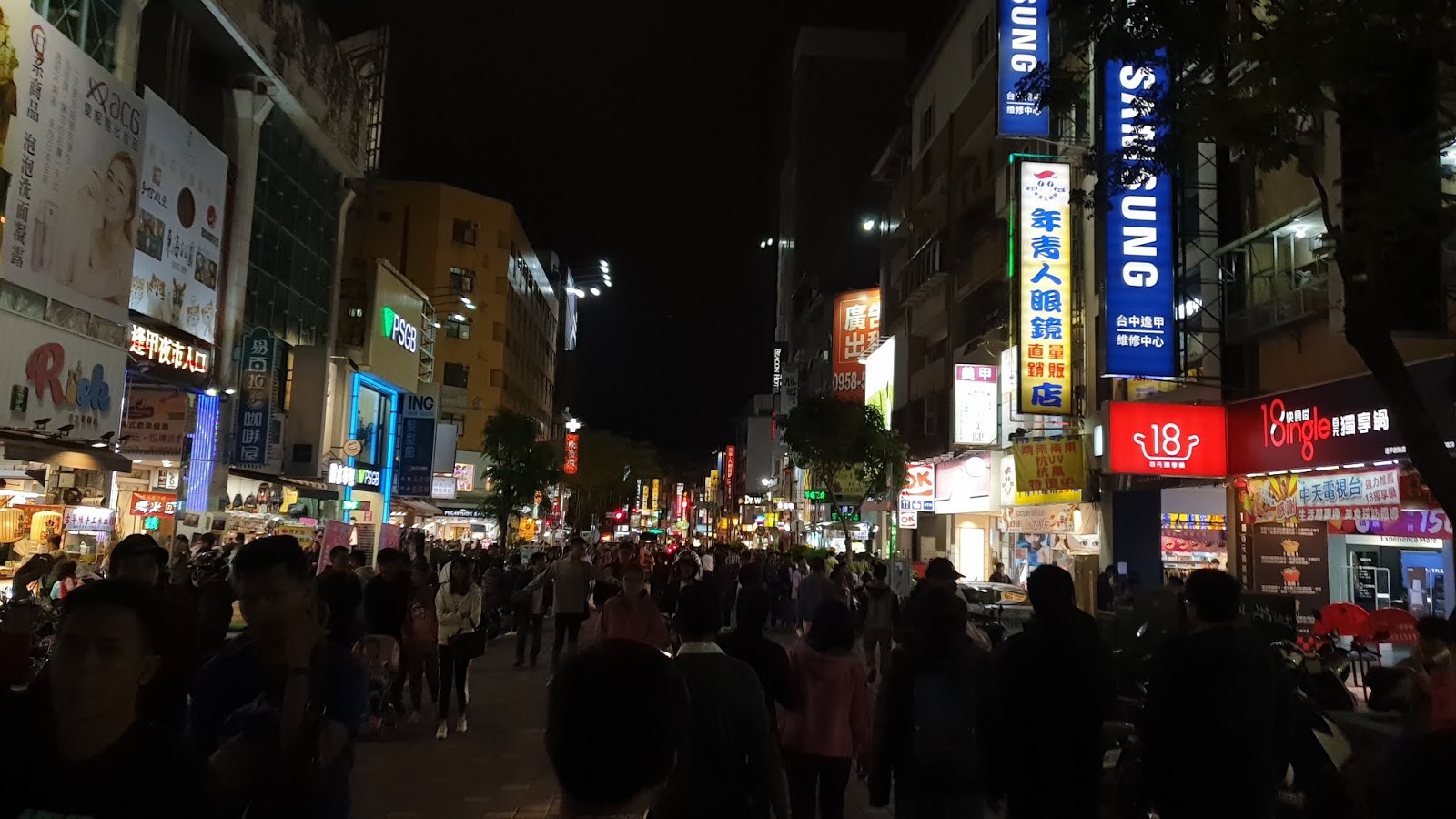We can't deny it, everyone wants to travel. It is an opportunity that give us knowledge, experiences, happiness and satisfaction. People may travel for the gram, for relaxation, or for business. It is not a luxury anymore and everyone can do it.
 |
| Crowded Square in Taichung, Taiwan |
Overtourism occurs when there are too many visitors to a particular destination. (Responsible Travel) It is tourism that gives negative impacts to the people in the area, especially the locals. It makes them uncomfortable and disturbs their daily lives.
Overtourism disrupts the supply and demand between hotels and tourists which encourages businessmen to the destroy and deforest locations just to build hotels and establishments. This also drives the locals out of their hometowns. (Read: Pine trees cut to give way to SM Baguio's 'sky park', ABSCBN News) It causes tourist spots to reach its maximum capacity making it harmful for locals, foreigners and the environment. (Read: Time to limit number of tourists in Boracay: experts, ABS-CBN News). Natural and cultural heritage are also in danger because of irresponsible tourists. (Read: Philippines' oldest artworks in danger of disappearing, Rappler).
There are a lot of negative effects, but what travelers really don't like is the bad experience they would have due to overtourism.
Does this mean we should stop traveling?
No, overtourism does not encourage us to stop traveling. We can still travel the world and visit these wonderful places. We just need to plan and learn how to help and promote good tourism.
 |
| Tourists flock Tanah Lot in Bali, Indonesia |
1. Go for the non-touristy place.
This should be on the top of the list because you'll never know what beauty you'll see if you don't get off the beaten path. Visit alternative destinations which offer the same scenery and experience with lesser people. Search online for alternative restaurants that's not too crowded. Visit the provinces and discover their rich culture. Everywhere is an adventure and offers unique and one-of-a-kind experience that you would truly remember. You'll never know which place you'll fall in love to.
2. Travel during off-peak periods
Don't mind the "best time to travel," and go for the non-touristy period. This also means visiting a place at the uncommon hours of the day-- try a night tour or visit during meal times since most people are out eating. Traveling during this time gives you the opportunity to stay at a destination longer without being bothered by fellow tourists. It is also is cheaper!
 |
| Patong Beach, Phuket: One of Thailand's crowded provinces |
As much as possible, stay at a location longer. Instead of staying for 2 nights, add a few more days. This way you can visit the tourist spots when there are fewer tourists.
4. Book your accommodation closer to the center to avoid traveling.
Book your accommodation closer to destinations to refrain from hailing a taxi or renting a car which can contribute to traffic. You can also save money! Instead of bringing a car, opt to use public transportation like buses and trains.
5. Travel to conservation sites and natural parks.
Skip the crowd favorites and visit conservation sites instead. Hike and explore natural parks, spend your time in nature.
 |
| The Peak, Hong Kong: Tourists taking pictures at the edge |
See: Sustainable Traveling: How to Travel Eco-friendly
Overtourism can also lead to deterioration of the environment and tourist sites. Let's be sustainable travelers by throwing our trash properly, keeping the places clean, observing green etiquette, and leaving no traces.
7. Be RESPONSIBLE travelers
We can be responsible travelers by conserving natural and cultural attractions. Let us be responsible with our actions by not creating damaging impacts to destinations.
8. Be RESPECTFUL travelers
Follow the rules and regulations of the area. As travelers, we should also respect the local's daily lives. We should respect culture, religion, and their environment.
It is a big challenge for us to be responsible travelers, just remember that it all starts with ourselves and we can do it!
PIN IT AND SHARE IT TO OTHERS.
FOOTNOTES:
Sources: National Geographic | Responsible Travel | ABS-CBN News | RapplerRAESCAPE contains affiliate links in the website. By clicking and purchasing through this links, I get to earn a small commission to help me run this website without extra cost to you. Thank you for helping a fellow traveler and say yes to adventures!
Read about the Disclosure and Disclaimer here.












Comments
Post a Comment